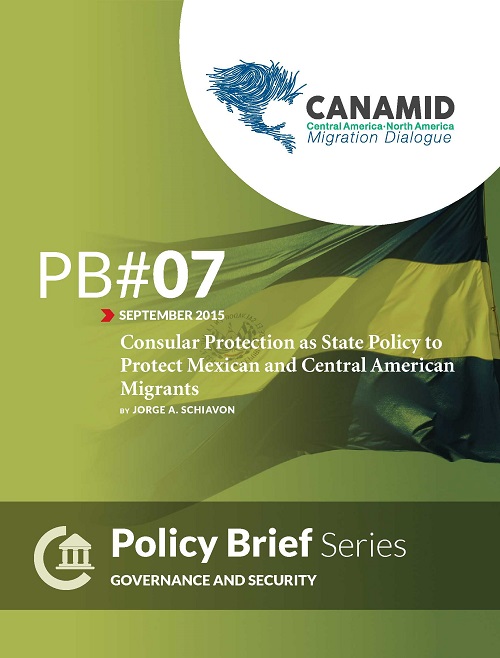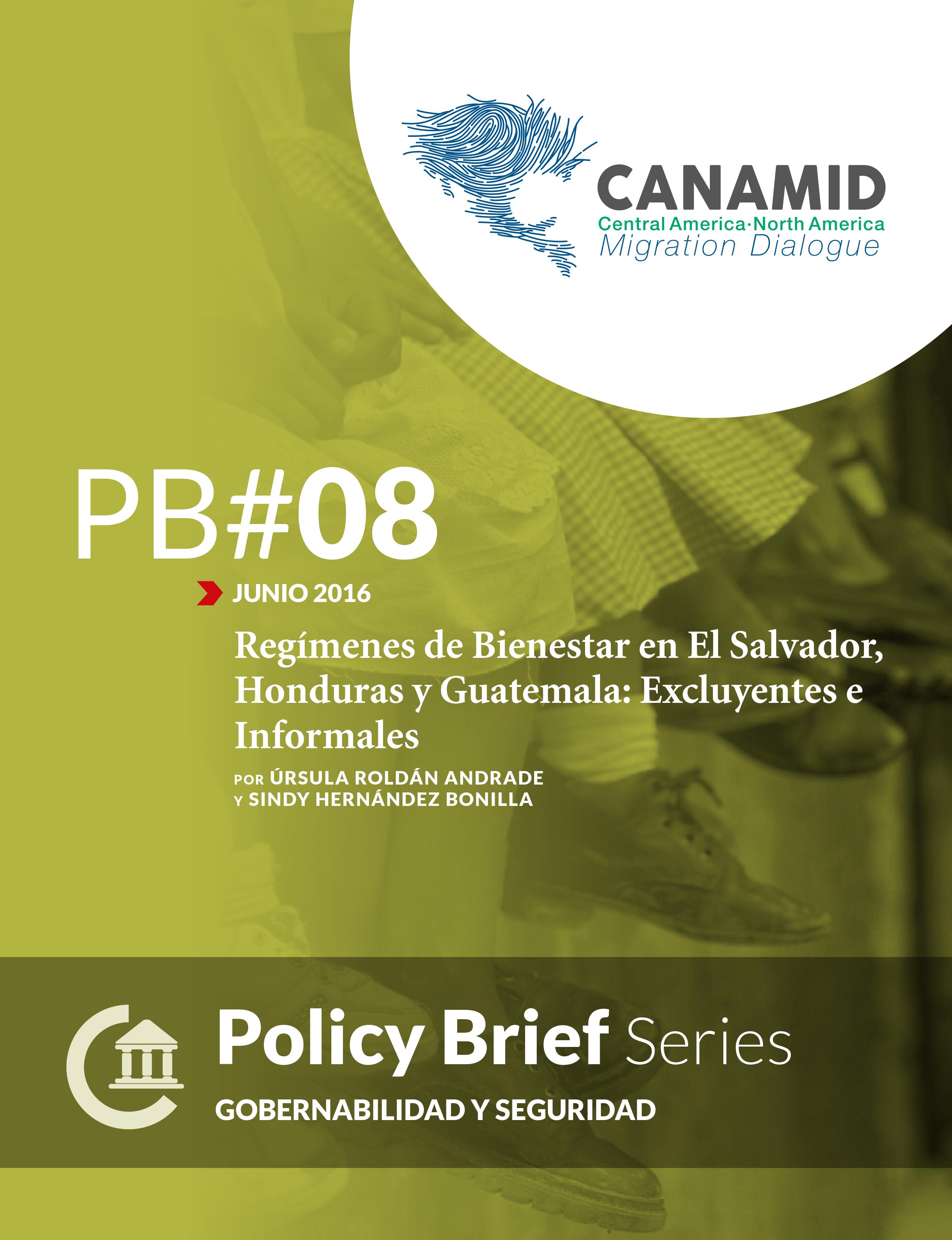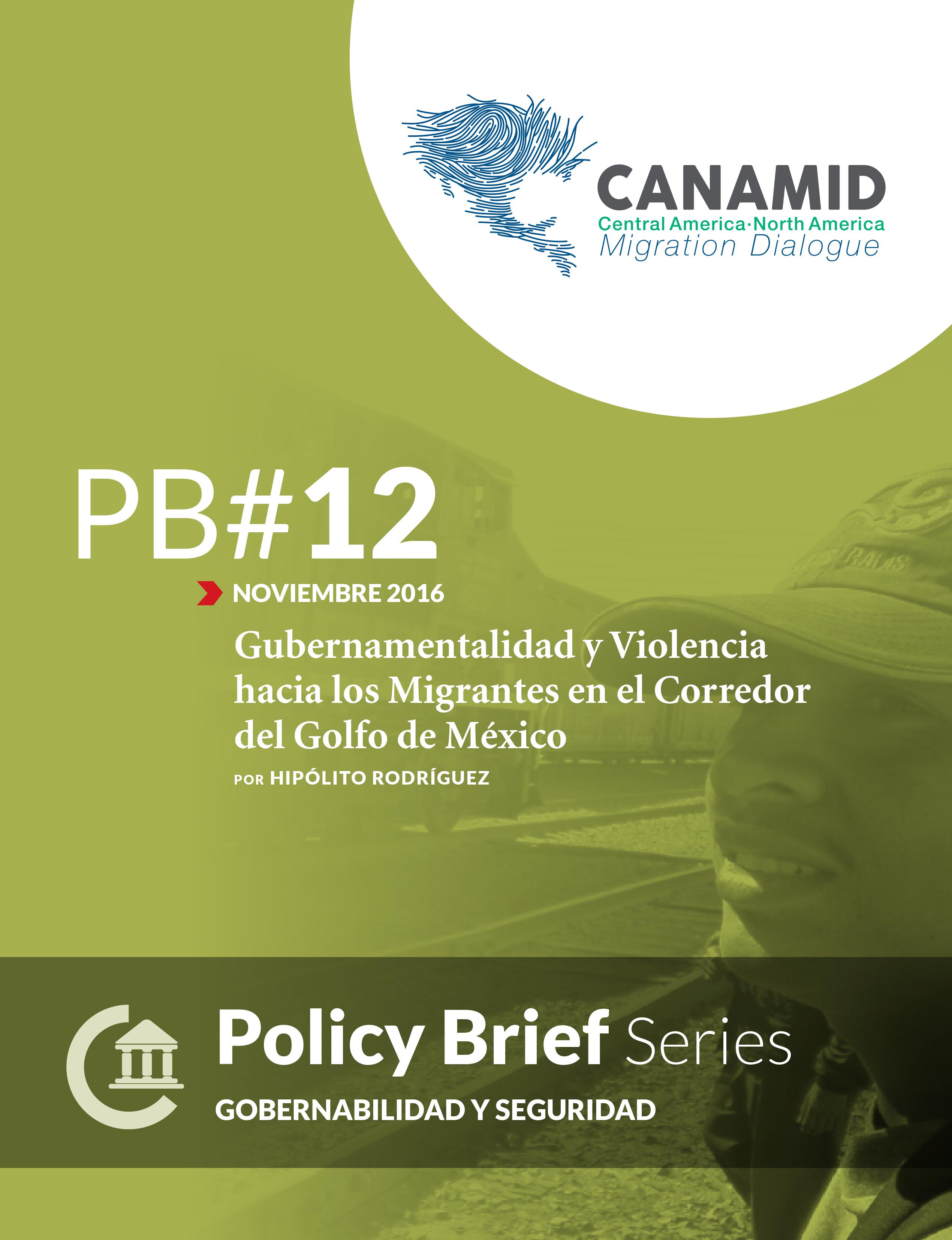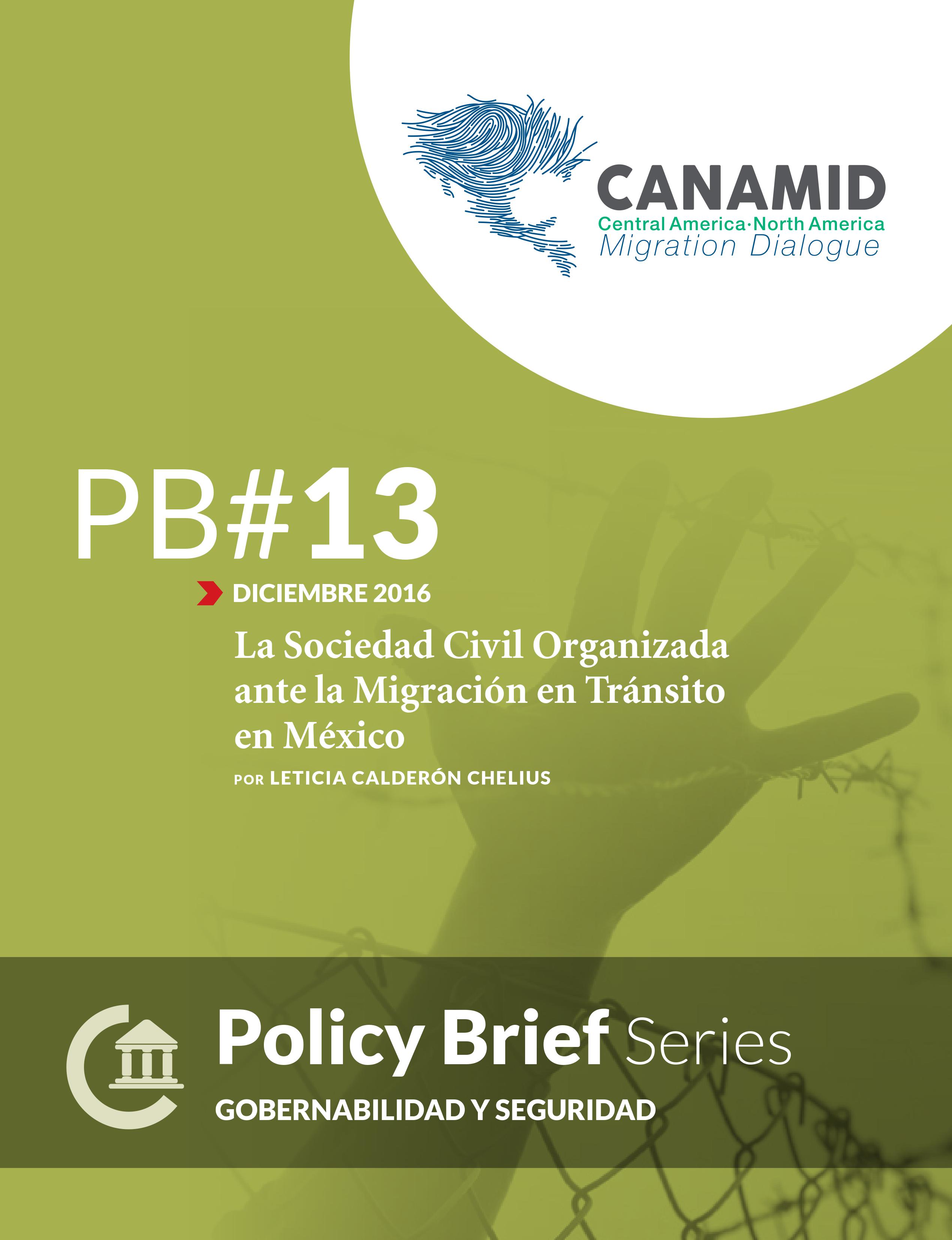 PB#07: Consular protection as state policy to protect Mexican and Central American migrants
Jorge A. Schiavon
PB#07: Consular protection as state policy to protect Mexican and Central American migrants
Jorge A. Schiavon
Following the implementation of more stringent immigration policies, there has been an increase in the violation of the rights of migrants—many of whom are minors—who lack the necessary migratory documentation in Mexico and Central America, whether that be in their country of origin, while in transit, at their destination or on their return. As such, consular protection should be positioned, institutionalized and consolidated as a state policy, being a responsibility shared by all countries within the region. Fortunately, in the last decade, Central American governments, following Mexico’s example, have begun to place consular protection as a priority public policy; however, they continue to favor diplomatic work over consular responsibilities.
 PB#08 Welfare regimes in El Salvador, Honduras, and Guatemala: Exclusionary and inadequate
Ursula Roldán and Sindy Hernández Bonilla
PB#08 Welfare regimes in El Salvador, Honduras, and Guatemala: Exclusionary and inadequate
Ursula Roldán and Sindy Hernández Bonilla
El Salvador, Guatemala and Honduras, the three countries that make up the Northern Triangle of Central America (NTCA), are known for exclusionary and inadequate welfare regimes that promote the emigration of their citizens. All three countries are characterized by poverty and inequality, especially in rural areas.
 PB#12 Governmentality and violence towards Central American migrants in the Gulf of Mexico
Pedro Hipólito Rodríguez Herrero
PB#12 Governmentality and violence towards Central American migrants in the Gulf of Mexico
Pedro Hipólito Rodríguez Herrero
Central American migrants crossing the Gulf of Mexico coastal plains to reach the United States are prey to violence caused by a combination of historical and geographical factors. In this part of the country, public security institutions have been taken over by organized crime, posing a risk to both national and human security.
 PB#13 Organized civil society in response to transit migration through Mexico
Leticia Calderón Chelius
PB#13 Organized civil society in response to transit migration through Mexico
Leticia Calderón Chelius
Over the last two decades transit migration flows through Mexico, mainly of Central American migrants, have grown substantially. This phenomenon has created a wide solidarity response in civil society in Mexico involving different activist groups such as NGOs or religious groups as well as individual volunteers; legal experts, professionals, academics and lay citizens. They together represent a rich rainbow of activities and causes that have actually conformed the new migration agenda in Mexico.